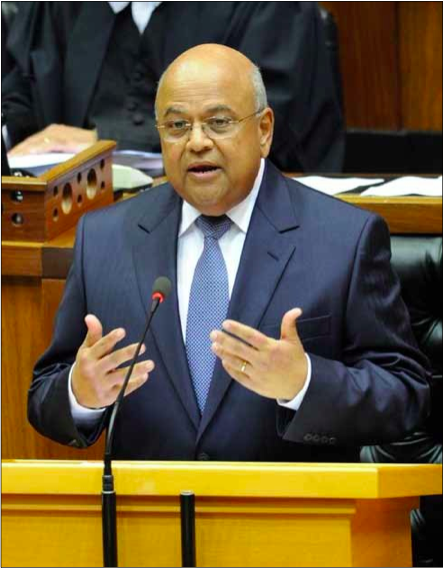In the coming year government will spend R134.9 billion on social grants, Finance Minister Pravin Gordhan has announced.
 For the first time, child support grants will increase twice this year – from R280 to R290 in April and to R300 in October.
For the first time, child support grants will increase twice this year – from R280 to R290 in April and to R300 in October.
In the Budget Speech delivered in Parliament in February, Minister Gordhan stressed that while government would continue to en- courage job creation, support for vulnerable households through old age, child support and other social assistance grants would remain important.
Old age and disability grants increase from R1 200 a month to R1 260 from April. Foster care grant rises from R770 to R800.
South Africa is among the few countries in the world that have a wide social security network for its vulnerable citizens. More than half of all households in South Africa benefit from social assistance. According to the National Treasury, social grants are the main source of income for 22 per cent of households.
More than 11 million children receive child support grants. The social assistance budget has increased by an average of 11 per cent a year since 2008/09, in part due to the extension of child support grants to children up to the age of 18. Minister Gordhan said spending on social assistance will rise to R120 billion next year.
The Minister allocated more money to the priority areas identified by government.
“In this budget we continue to invest in education, health, housing, public transport and social development – components of the social wage which add up to about 60 per cent of public expenditure,” he said.
R233 billion will be spent on education, sports and culture. Minister Gordhan explained that the focus would include improving numeracy and literacy, expanding enrolment in Grade R, reducing school infrastructure backlogs and constructing new universities in the Northern Cape and Mpumalanga.
He added that government’s existing approach to supporting employment growth focused on training, skills development, labour market activation and short-term public employment. Programmes to support these objectives include Sector Education and Training Authorities and further education and training colleges.
As part of plans to boost opportunities for young work seekers, government recognised the need to share the costs of expanding job opportunities with the private sector.
A revised youth employment incentive will be introduced in Parliament after consultations, together with a proposed employment incentive for certain sectors of the economy. To improve South Africa’s health system, the health sector has been given R133.6 billion from the national budget.
Minister Gordhan said some of the money would be used to complete the building of some 1 967 health facilities and 49 nursing colleges, which he said, were in different stages of planning, construction and refurbishment.
More than R800 million has been allocated to provide antiretroviral treatment for people with HIV. Spending on general health infrastructure increased from R3.3 billion in 2009/10 to R5.4 billion in the 2012/13 financial year and this is expected to grow to R6.5 billion over three years.
This is because of the National Health Insurance (NHI) Scheme that government plans to introduce. The NHI will provide universal access to quality healthcare for all South Africans.
Minister Gordhan increased spending on defence, public order and safety by 9.7 per cent a year from 2008/09 to 2011/12. This means the budget for the army, the police and other armed formations will grow from R140 billion in 2012/13 to R158 billion in 2014/15.
The Minister also allocated money to improve courts, strengthen the Office of the Public Protector and boost the Independent Police Investigative Directorate (IPID).
“Additional funding of R300 million is allocated for court infrastructure, including new high courts in Polokwane and Nelspruit. The Office of the Public Protector and the IPID are allocated additional funds to expand capacity. Funds are provided to the defence force to increase personnel deployment for border protection,” he added.



 Facebook
Facebook Twitter
Twitter WhatsApp
WhatsApp